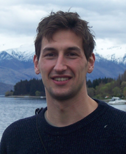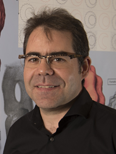Best Paper 2014
The U.V. Helava Award, sponsored by Elsevier B.V. and Leica Geosystems AG, is a prestigious ISPRS Award, which was established in 1996 to encourage and stimulate submission of high quality scientific papers by individual authors or groups to the ISPRS Journal, to promote and advertise the Journal, and to honour the outstanding contributions of Dr. Uuno V. Helava to research and development in photogrammetry and remote sensing.
The Award is presented to authors of the best paper, written in English and published exclusively in the ISPRS Journal during the four-year period from January of a Congress year, to December of the year prior to the next Congress. The Award consists of a monetary grant of SFr. 10,000 and a plaque. A five-member Jury, comprising experts of high scientific standing, whose expertise covers the main topics included in the scope of the Journal, evaluates the papers. For each year of the four-year evaluation period, the best paper is selected, and among these four papers, the one to receive the U.V. Helava Award.
The fifth U.V. Helava Award will be presented at the 23th ISPRS Congress in Prague, 12-19 July 2016. The Jury appointed by the ISPRS Council evaluated papers from volumes 87-98 (2014) and announces its decision for the Best Paper. The winner of the 2014 Best Paper Award is:
 "Indoor scene reconstruction using feature sensitive primitive extraction and graph-cut"
"Indoor scene reconstruction using feature sensitive primitive extraction and graph-cut"
by Sven Oesau, Florent Lafarge and Pierre Alliez
Inria Sophia Antipolis – Méditerranée, Sophia Antipolis, France
 |
|
 |
|
 |
| Sven Oesau |
|
Florent Lafarge |
|
Pierre Alliez |
published in volume 90, April 2014, pp. 68-82, http://dx.doi.org/10.1016/j.isprsjprs.2014.02.004
Jury's rationale for the paper selection
This paper addresses the challenging problem of as-built indoor model reconstruction from point clouds with a novel graph-cut algorithm for 3D space partitioning. The jury was impressed with the very clear description of the algorithm, high-quality images and convincing results with examples showing the results of different control-parameter choices. The experiments validate the robustness of their method and make comparison to results obtained by other methods. The jury also noted the broad significance of the authors’ work in terms of its practical application.
On behalf of the ISPRS and the U.V. Helava Award Jury, I would like to congratulate the authors for this distinction and thank them for their contribution. I would also like to thank the sponsors of the Award, and the Jury members for their thorough evaluations.
Derek Lichti
Editor-in-Chief
ISPRS Journal of Photogrammetry and Remote Sensing,
The University of Calgary, Canada
E-mail address: ddlichti@ucalgary.ca